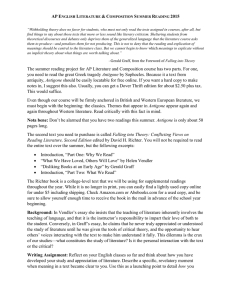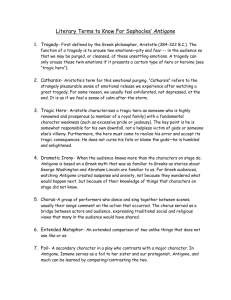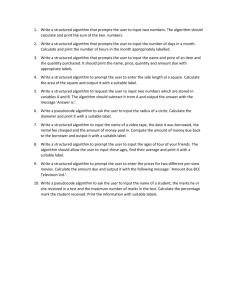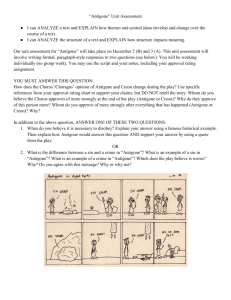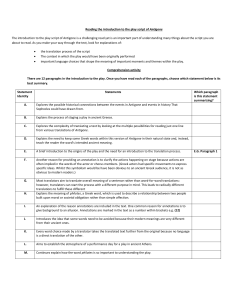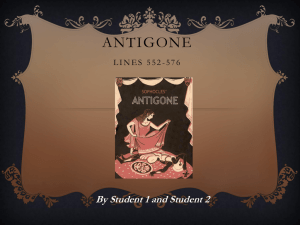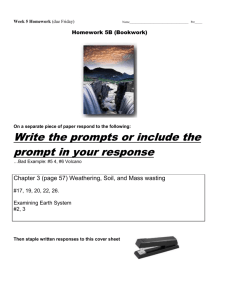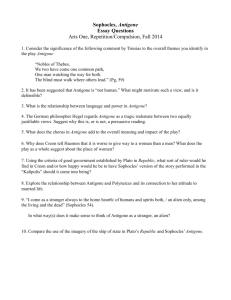Sophocles prompts
advertisement
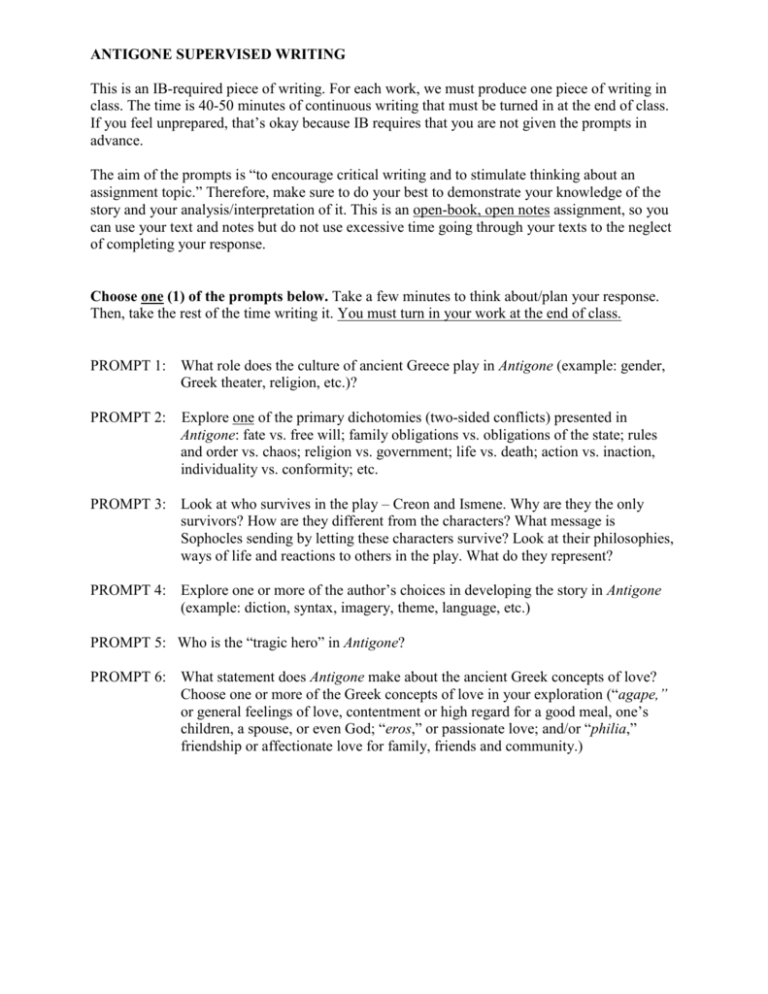
ANTIGONE SUPERVISED WRITING This is an IB-required piece of writing. For each work, we must produce one piece of writing in class. The time is 40-50 minutes of continuous writing that must be turned in at the end of class. If you feel unprepared, that’s okay because IB requires that you are not given the prompts in advance. The aim of the prompts is “to encourage critical writing and to stimulate thinking about an assignment topic.” Therefore, make sure to do your best to demonstrate your knowledge of the story and your analysis/interpretation of it. This is an open-book, open notes assignment, so you can use your text and notes but do not use excessive time going through your texts to the neglect of completing your response. Choose one (1) of the prompts below. Take a few minutes to think about/plan your response. Then, take the rest of the time writing it. You must turn in your work at the end of class. PROMPT 1: What role does the culture of ancient Greece play in Antigone (example: gender, Greek theater, religion, etc.)? PROMPT 2: Explore one of the primary dichotomies (two-sided conflicts) presented in Antigone: fate vs. free will; family obligations vs. obligations of the state; rules and order vs. chaos; religion vs. government; life vs. death; action vs. inaction, individuality vs. conformity; etc. PROMPT 3: Look at who survives in the play – Creon and Ismene. Why are they the only survivors? How are they different from the characters? What message is Sophocles sending by letting these characters survive? Look at their philosophies, ways of life and reactions to others in the play. What do they represent? PROMPT 4: Explore one or more of the author’s choices in developing the story in Antigone (example: diction, syntax, imagery, theme, language, etc.) PROMPT 5: Who is the “tragic hero” in Antigone? PROMPT 6: What statement does Antigone make about the ancient Greek concepts of love? Choose one or more of the Greek concepts of love in your exploration (“agape,” or general feelings of love, contentment or high regard for a good meal, one’s children, a spouse, or even God; “eros,” or passionate love; and/or “philia,” friendship or affectionate love for family, friends and community.)


